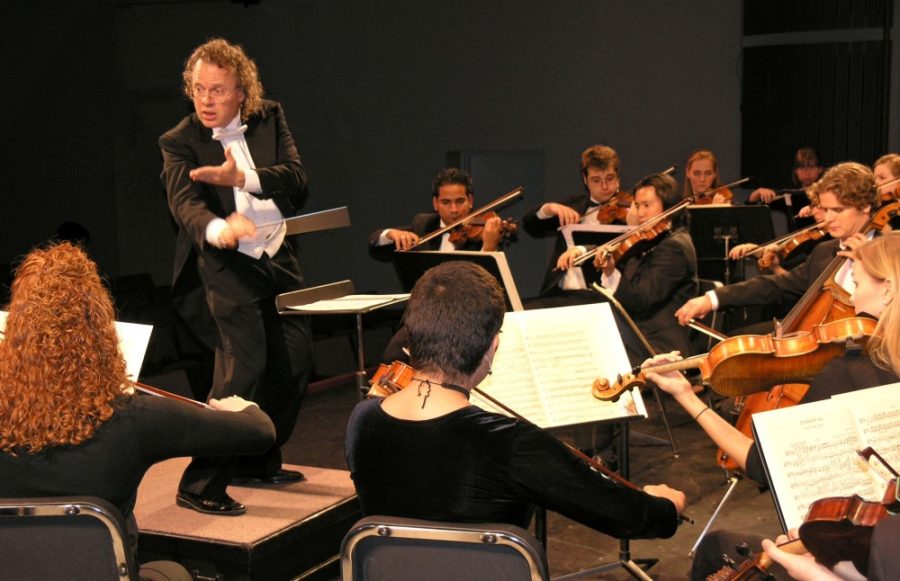“”They’re exciting, it’s instantly appealing, it’s stuff that people would probably recognize. There are no shortage of good reasons,”” said Jackson Warren, a James E. Rogers Conducting Fellow, of the Arizona Symphony Orchestra’s season opener, “”Titans of Late Romanticism.”” The show features the overture to Giuseppe Verdi’s “”La forza del destino,”” Richard Wagner’s “”Siegfried Idyll,”” and Johannes Brahms’ Symphony No. 4.
“”The main piece is the Brahms Symphony No. 4, which is arguably his greatest work.”” Warren said.
“”There is amazing thematic unity throughout the entire work, which is not easy to accomplish, but he does it brilliantly. It’s sophisticated, and at the same time completely natural and organic in its construction.””
Thomas Cockrell, Director of Orchestral Studies and the Arizona Symphony Orchestra, said each piece adds something different to the program.
“”The piece by Verdi is very fiery and dynamic, a very energetic piece,”” he said. “”The Wagner is very subdued and lyrical and just absolutely drop-dead gorgeous.””
Because of the works’ high levels of difficulty, each member has to focus on being prepared.
“”All three pieces are fully professional works and have different kind of demands that are very difficult,”” Warren said. “”We’ve only had five weeks of rehearsals, and that’s not a ton of time for music that’s really demanding.
“”If professionals were to play these pieces, they would know them and they would have played them, but most of these players are playing these pieces for the first time, so it just has to be a really fast learning curve and everybody has to take time and prepare the music, because it’s not music that you can read. … It’s a very ambitious program.””
“”It’s difficult making sure that we’re really prepared for the rehearsals, so we’re not learning notes in the rehearsals,”” said Catherine Michelsen, a second-year doctoral student and violinist, “”…(so) we can really get down to music-making during those three rehearsals that we have a week.””
While the concert has required a great deal of preparation, orchestra members say that all of the work will result in a remarkable performance.
“”It’s a nice change of pace from popular music,”” Michelsen said. “”This is a really exciting performance to see and hear.””
“”It’s basically some of the greatest music ever written,”” Warren said. “”It’s just a very special experience. There is no weak link in this concert.””
The Arizona Symphony Orchestra will perform at 7:30 p.m. on Sept. 26 at Crowder Hall in the School of Music. Admission is $5.









